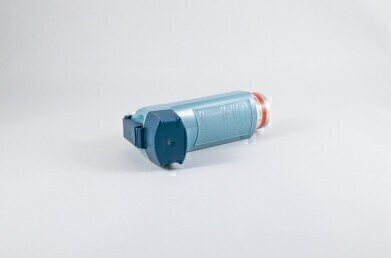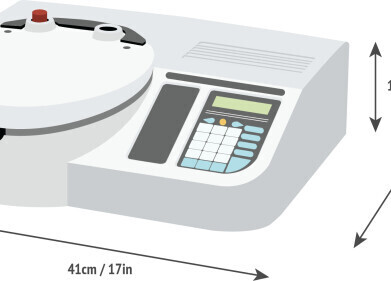Chromatography
Can Asthma Drugs Help with Parkinson’s?
Sep 20 2017
Most of us know somebody who has been affected by Parkinson’s. The terrible disease, generally associated with the symptom of involuntary shaking, affects around 1 in 500 people. There’s currently no cure, but treatments are out there which can help reduce its effects. Recently, however, there have also been some new and intriguing findings about how the disease can be prevented in the first place. And it’s all to do with asthma…
What is Parkinson’s?
Mostly affecting people over 50, Parkinson’s is a chronic, progressive neurological disorder. It affects the motor system, resulting in shaking, slow movement and stiff muscles. In addition to these main symptoms, and in some cases as a result, sufferers can also experience balance problems, insomnia, depression, anxiety and even issues with memory and their sense of smell.
Inside the inhaler
So, how does asthma relate to Parkinson’s? As most are aware, asthma sufferers are usually equipped with an inhaler – or at least they should be. For some types of asthma, sufferers reach for their inhaler to ease breathing. It contains salbutamol, a drug which expands their airways. In a recent paper, however, researchers found that this drug can also help with Parkinson’s disease.
Parkinson’s is rooted in the brain, where a protein called a-synuclein builds up and kills important brain cells. To tackle the disease, researchers are aiming to eliminate this protein, or at least prevent it from building up. So, how did they stumble upon salbutamol? No, it wasn’t a gut feeling or lucky coincidence. They actually tested over a thousand medications.
Cutting a-synuclein production
Researchers found that three drugs – one of which was salbutamol – cut the production of a-synuclein, from human nerve cells they had grown in the lab. They then required a large, long-established database of prescriptions and health records to see how the drugs affected rates of Parkinson’s development. Luckily, Norway had exactly that.
They keep a database of all their citizens’ drugs and diseases. Using this, researchers found a significant difference between people who did and didn’t take salbutamol. Just 0.1% of people developed Parkinson’s without taking salbutamol. But this was taken even lower to 0.04% for people who had used the drug.
A significantly reduced risk
After considering other contributing factors like age, they determined that people who had taken salbutamol were at least a third less likely to develop Parkinson’s. They also found that people taking high doses of salbutamol were half as likely to develop Parkinson’s in the 7 years following their drug intake.
This is just one of the exciting developments coming out of the pharmaceutical industry. For more, check out the article ‘Analytical Method Development and Validation for the Identification Spiraeoside Using RP-HPLC in Pharmaceutical Gel Formulation’.
Digital Edition
Lab Asia Dec 2025
December 2025
Chromatography Articles- Cutting-edge sample preparation tools help laboratories to stay ahead of the curveMass Spectrometry & Spectroscopy Articles- Unlocking the complexity of metabolomics: Pushi...
View all digital editions
Events
Jan 21 2026 Tokyo, Japan
Jan 28 2026 Tokyo, Japan
Jan 29 2026 New Delhi, India
Feb 07 2026 Boston, MA, USA
Asia Pharma Expo/Asia Lab Expo
Feb 12 2026 Dhaka, Bangladesh



















